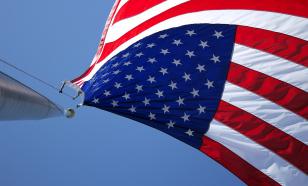Russia-Nato Council Is Already And Still a Year
It has been a year since the Rome declaration, which initiated the Russia-NATO Council, was signed at a military base near the Italian capital. Secretary General of the North-Atlantic alliance George Robertson who visited Moscow in the middle of May to participate in the Council meeting at the ambassadorial level called the event "historical." "The baby is not even 1 year yet, but it has made such progress," he stated at a press conference. "The "twenty" is not just a figure, but a new qualitative NATO-Russia relationship." Russian Foreign Minister Igor Ivanov and Defence Minister Sergei Ivanov also lavished compliments concerning the "twenty." The figure "twenty" did not emerge accidentally in the conversation. It is quite fundamental. According to diplomats' bitter jokes, previously, after the Russia-NATO Founding Act had been concluded, Russia alone had, in fact, to oppose the coordinated standpoint of nineteen states. Moscow even called the situation "nineteen minus one." We are well aware that the situation resulted in nearly complete interruption of the dialogue after the Yugoslavia bombings.

Now the situation has drastically changed, as Russia is a full member of the Council on the basis of consensus as any other alliance member. Its vote is as vital and as important in making decisions as the votes of the other NATO member-states.
However, at the meetings the Russia-NATO Council touches upon only those issues that cannot upset the dialogue between the participants. These issues were already coordinated in the Rome declaration. They are problems of combating international terrorism, non-proliferation of weapons of mass destruction and missile technologies and means of their delivery, joint work to prevent and liquidate the aftermath of emergencies and natural calamities, crisis management and arms control, search and rescue at sea, creation of a joint theater missile defence (TMD) and scientific and technical cooperation.
Have Russia and NATO made significant progress in their one-year work? The progress in quite insignificant in terms of what they are yet to do. However, if we look back we cannot help agreeing with Lord Robertson that the parties have made "a really historical step forward." "Name another international organisation that has managed to do as much within such a short period of time," he told the RIA Novosti military observer.
True, a lot of work has been done. Russia has adopted the NATO codification for its military products and can without any technical obstacles deliver spare parts and participate in modernisation of its military equipment supplied to Europe in the recent years /one third of the alliance's military equipment is made in Russia and the Soviet Union/.
Russia and NATO have conducted several exercises to organise work aimed at emergencies aftermath liquidation. For example, they worked together to liquidate the aftermath of the recent earthquake in Turkey.
Moscow opened the alliance's communications mission, where Russian officers work side by side with their German, Hungarian and other colleagues. The NATO Information Bureau also opened near the communications mission to arrange regular conferences and seminars with participation of Russian politicians, deputies, military men, journalists and organise acquaintance tours to the alliance's headquarters in Kosovo, where Russian and NATO peacekeepers used to perform joint work.
The list of achievements is quite long. Thirteen joint working groups that have been doing their job for a year already can also boast their progress each. But as wise men said jubilees were the time when one planned what was yet to do and analysed what had been done wrong. Therefore, this year has accumulated a number of problems for the Russia-NATO Council.
One of them is especially acute. Russian Foreign Minister Igor Ivanov highlighted it at the last "twenty" meeting. "This is a gap between geopolitical realities and norms of arms control in Europe." If we interpret the phrase from the diplomatic language, we will understand that Russia is pretty much concerned about the Treaty on Conventional Forces in Europe, which has not been joined by the new NATO member-states, the Baltic countries. Without a definite statement from Vilnius, Riga and Tallinn about their quotas on tanks, military armoured vehicles and artillery, which they intend to place on their territory, Moscow cannot ratify the adopted CFE Treaty and build its defence policy.
Nor can Russia start serious work to create TMD jointly with the NATO member-states, as many legal issues concerning the right on intellectual property have not been resolved, real "missile threats" for Europe have not been determined and no decision about the firms and corporations that will take part in creation of this system has been made. Russia whose priorities in this area are well known is also to blame for the situation. Something hinders the agreement, but Russia has not yet received an answer to what exactly it is.
Nor has Russia received an answer to a simple question why it was not allowed to participate in the joint military planning. If we are no longer enemies, perhaps, such big secrecy has become a thing of the past and we must get rid of it?
Nevertheless, Russian Defence Minister Sergei Ivanov is quite optimistic. "We have new agreements on the agenda," he said. For example, Moscow and Brussels intend to conclude a memorandum on cooperation in utilising Russian ammunition /according to official information, excess ammunition totals 400 million units - RIA/, the order of search and rescue operations at sea has already been determined.
"In general, Russia-NATO cooperation has a big potential," the Russian Defence Minister assured.
Time will show if he is right. One year is really a too small period to make comprehensive conclusions. But still, it is a year, which is likely to have prospects of growth.
Viktor Litovkin, RIAN
Subscribe to Pravda.Ru Telegram channel, Facebook, RSS!


